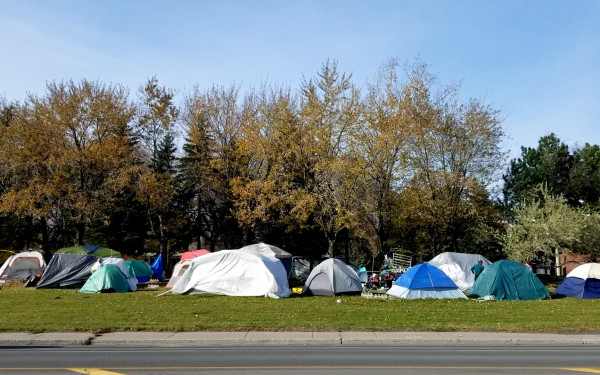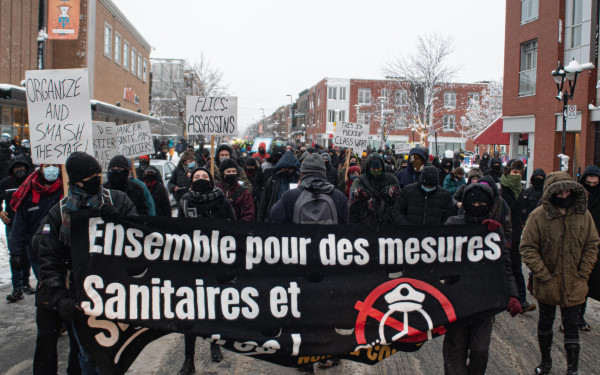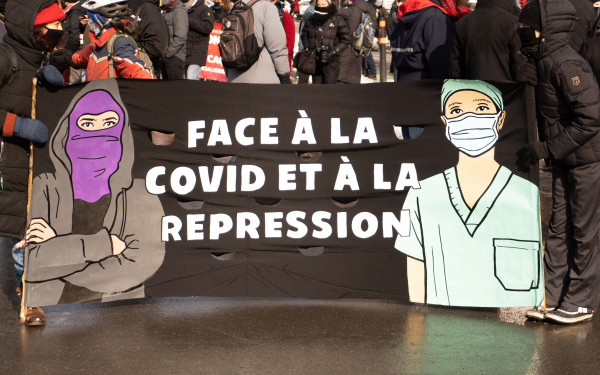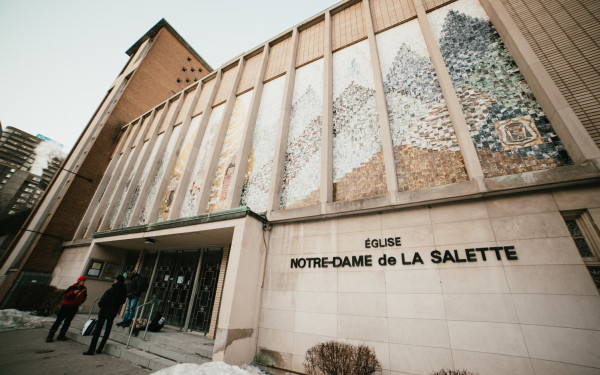Montreal to Spend $35 Million Fighting Homelessness
Mayor to Build 750 Housing Units, Reduce Vagrancy Arrests
Gerald Tremblay wants to change the way Montreal deals with homelessness.
On Oct. 13, Mayor Tremblay announced plans to build 750 new housing units for the homeless by 2013.
He also pledged to work with the Service de Police de la Ville de Montréal to provide officers with sensitivity training in order to shift police focus away from arrests and ticketing that disproportionately affect those who live on the street.
“This is something we’ve been working on for two years but it has been a priority for the Mayor since he was elected in 2002,” said Darren Becker, the Mayor’s spokesperson. “About two weeks into [Tremblay’s] first mandate, the first big file he dealt with was homelessness. Some people had set up a temporary shelter under the Jacques Cartier Bridge and city officials moved in a little too quickly and took it down. That generated a whole debate about homelessness and [Tremblay] has since worked with different groups to address the problem.”
The project will cost upwards of $85 million, with the city spending around $7 million a year on policing initiatives and housing construction. The Mayor has also called on the Quebec government for $29 million in funding and the federal government for an additional $21 million. Becker said the city would not wait for other levels of government to go ahead with the project.
“We’re ready to put up the five to seven million dollars a year this project needs to get going,” said Becker.
“We can’t just Keep arresting [the homeless] and expect different results.”
__Marc Riopel. SPVM Detective
The SPVM has already started training its officers to better understand the living conditions homeless people are faced with.
In addition to the sensitivity training, Montreal Police formed Equipe mobile reference et d’intervention en itinérence earlier this fall. EMRII is a two-officer task force that collaborates with street workers to offer social services for the homeless who are most often ticketed or arrested on vagrancy-related charges.
The size of the task force is expected to triple if it receives additional funding from the ministry of public safety.
“We get this revolving door of people who are arrested and ticketed time and time again,” said SPVM detective Marc Riopel. “We can’t just keep arresting them and expect different results.”
One of the project’s biggest obstacles will be getting funding from other levels of government. Riopel said the SPVM is counting on provincial support to build a $1 million “respite” centre.
“The respite centre will make the police’s job much easier,” he said. “In the past, when a person was too intoxicated or too rambunctious to be admitted in a homeless shelter we had two options: arrest him or take him to the hospital. Now if we had the respite centre the person could stay there to detox and not be out on the street or in jail.”
Some of the plan’s other initiatives include the construction of an outreach centre aimed at providing aid to Montreal’s homeless Inuit population and adapted services for Inuit women—who are disproportionately affected by conjugal violence.
A few days after Tremblay’s announcement, Montreal’s Anti Police Brutality Coalition voiced opposition to the plan. Coalition spokesperson Sophie Sénécal called the plan discriminatory and alleged its main goal was to clear homeless people from public places.
This article originally appeared in Volume 31, Issue 10, published October 19, 2010.






